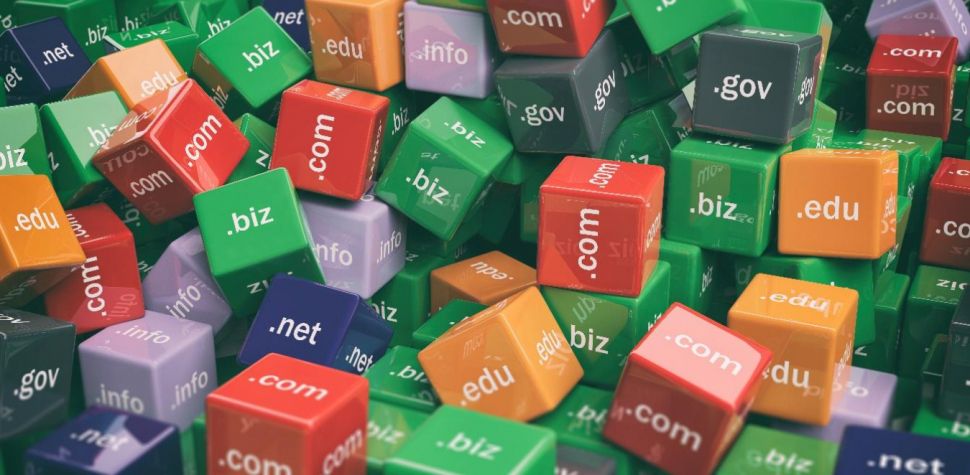
For practically 40 years, the Area Identify System (DNS) has served because the definitive naming system for the web. Functioning like a worldwide cellphone guide, DNS interprets numeric-based addresses, known as Web Protocol (IP) addresses, that computer systems use to navigate the web into a singular, human-readable textual content string known as a website identify. From its humble beginnings in 1985 with the primary area registered – symbolics.com – DNS has grown into a worldwide, multilingual and multinational phenomenon, with 359.3 million domains presently registered.
James Bladel
DNS has reworked our tradition and the best way we communicate and take into consideration web sites, e mail addresses, and area extensions like dot com. Domains have additionally turn into a vital a part of establishing the digital identities of entrepreneurs, corporations, and well-known manufacturers worldwide.
Behind the scenes, DNS quietly retains the web functioning throughout a large number of platforms, together with computer systems, cellphones, tablets, automobiles and the increasing universe of sensible units comprising the Web of Issues (IoT). It doesn’t matter what the gadget or its goal, it advantages from the common accessibility and uniqueness of DNS to remain related.
Extra just lately, we’ve seen the emergence of blockchain know-how – a safe and decentralized ledger system that consists of linked data, every containing a listing of transactions. Blockchain data are distributed throughout a community of computer systems, offering transparency, transaction integrity and resistance to tampering. Probably the most acquainted utility for blockchain know-how is to help cryptocurrency transactions, with the cash or tokens residing in customers’ crypto wallets. These wallets have distinctive addresses, and identical to the gadget IP addresses talked about beforehand, they don’t seem to be human-readable or simply remembered. Startups like Ethereum Identify Companies (ENS) and Unstoppable Domains have launched their very own naming techniques to situation blockchain identifiers (generally inaccurately known as “blockchain domains”) as a method to hyperlink user-friendly strings to a singular pockets tackle.
The benefits of blockchain identifiers embrace decentralization, censorship resistance, no renewal charges, and they don’t expire. Nevertheless, each replace requires paying fuel charges, that are small fees for processing transactions, and making use of blockchain identifiers to different providers presently supported by DNS, like internet and e mail assets, is proving to be more difficult.
Blockchain identifiers have many points
Early adopters of blockchain identifiers are discovering necessary limitations. Each the registering celebration and the top consumer have to make use of customized community settings, or obtain particular browsers or plug-ins, all of which impedes wider adoption. Moreover, blockchain identifiers introduce challenges with “identify collisions“. This happens when the identical area identify exists in two techniques on the identical time, which might create safety dangers and navigation conflicts when somebody makes an attempt to make use of a website. Blockchain identifiers can “collide” with an identical domains in DNS, and even with different blockchains. A examine on the collision of .cba domains sheds mild on the challenges related to collisions.
Together with identify collisions and being troublesome to make use of, blockchain identifiers are hampered by decreased belief and consumer confidence. Due to its scale and ubiquity, DNS is trusted and acknowledged by billions of customers on daily basis. One motive for this belief is as a result of it addresses challenges with domains resembling DNS abuse. To fight abuse and keep consumer belief, DNS regulators have adopted formal dispute procedures just like the Uniform Area-Identify Dispute-Decision Coverage (UDRP) and area identify registrars are topic to established legal guidelines such because the Anti-cybersquatting Client Safety Act (ACPA) to deal with infringement and counterfeit websites.
In distinction, blockchain identifiers lack centralized oversight or instruments to successfully tackle abuse, infringement, or prison actions related to their identify providers. There are not any dependable dispute mechanisms, and nobody can “take down” an abusive blockchain identifier. If this sounds just like the ‘Wild West,’ that’s as a result of it’s. The perceived benefit of not having insurance policies and rules is also blockchain’s demise in conditions the place the necessity for cover towards malicious actions turns into vital.
So, are these blockchain-based identifiers an enchancment over DNS? To find out if they’re appropriate, it is important to first perceive what issues they search to handle. Implementation of know-how shouldn’t merely be for the sake that it exists, however as a substitute, needs to be applied to resolve an issue.
Many proponents of blockchain know-how assert that it eliminates the necessity for entities like ICANN and registrars, providing a management-free setting. Additionally they assert that blockchain addresses the difficulty of renewal charges, offering a system free from expirations or deletions. Nevertheless, whereas these benefits could also be compelling for some, they’re usually outweighed by their technical limitations, eroded consumer confidence or potential conflicts from identify collisions.
Consequently, as a substitute of changing DNS, blockchain know-how and crypto wallets will be supported by DNS. As an example, web customers can register .eth domains with ENS, whereas .artwork DNS domains present a platform to combine crypto know-how. Area registries and registrars can help blockchain know-how to bridge a spot that permits for a safe, built-in web.
Presently, blockchain identifiers fall wanting domains as a consequence of their restricted performance, advanced consumer necessities and structural vulnerability. However, like all rising know-how, they’re evolving, and these shortcomings could also be successfully addressed sooner or later. Fairly than changing the DNS, it’s extra seemingly that blockchain evolution will spur new use circumstances for DNS to bridge the 2 techniques. With GoDaddy domains supporting ENS wallets, we’re starting to see that potential.
This text was produced as a part of TechRadarPro’s Knowledgeable Insights channel the place we characteristic the very best and brightest minds within the know-how business at present. The views expressed listed here are these of the creator and should not essentially these of TechRadarPro or Future plc. If you’re enthusiastic about contributing discover out extra right here: https://www.techradar.com/information/submit-your-story-to-techradar-pro